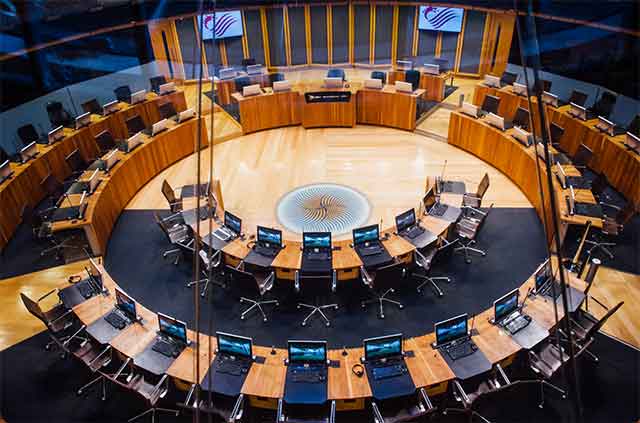Senedd members set aside their differences to reflect on the cost of war, sharing deeply personal family stories of loss in a poignant cross-party debate to mark Armistice Day.
Ken Skates, who is responsible for policy related to the armed forces in Wales, led a debate to honour the service and sacrifice of all those who have worn the armed forces uniform.
The cabinet secretary said: “This year marks the 80th anniversary of VE Day and VJ Day – two milestones that signalled the end of the most devastating conflict in human history.
“For many, these anniversaries are not just historical footnotes – they are personal, lived memories. In Wales, the remembrance period is woven into the fabric of our communities.”
Mr Skates told the Senedd: “We gather each November, not to glorify war but to honour courage, sacrifice and the hope of peace. We wear our poppies… as a promise: that we will remember and we do remember.”
‘When service ends, support does not’
He said: “These anniversaries remind us that peace is precious – that freedom is fragile – and the sacrifices made by previous generations must never, ever be taken for granted.”
Mr Skates pointed out that 7% of the UK’s armed forces – from the Royal Navy to the Royal Air Force – come from Wales, which makes up 5% of the population.
Leading the cross-party debate on November 11, he stressed the importance of ensuring “when service ends, support does not” as he welcomed a new UK veterans strategy.
James Evans, for the Conservatives, said: “We reflect, once more, on the extraordinary generation who, in the darkest of times, stood firm in the defence of our islands.
“Their courage brought a peace we often take for granted, their sacrifice shaped the world.”
‘We cannot comprehend’
Mr Evans’ father and both grandfathers served in the armed forces.
He said: “One endured the terror of being torpedoed twice while at sea and survived to tell the tale. The other played his part in the liberation of Europe. Their stories are carried in my family as similar stories are carried through families right the way across Wales.
“They remind us that the cost of war is measured not only in battles but in lives interrupted, futures changed and families forever marked by loss.”
Plaid Cymru leader Rhun ap Iorwerth told the Senedd: “We bear witness today to the emptiness of the phrase that portrayed the First World War as the ‘war to end all wars’.
“In Sudan, in Ukraine, in Gaza, to name but three, the atrocities of violence bring pain and suffering that we cannot comprehend to millions of people.”
Mr ap Iorwerth said 117 million people have been forced to flee their homes across the world as a result of war or persecution, according to the United Nations.
‘We will remember them’
Labour’s Carolyn Thomas said her great-grandfather, Thomas Morris, was killed in action in 1917 aged only 32 and her grandfather spent time in an orphanage following his death. “It was an experience he rarely spoke about,” she said. “But he too, was a victim of war.”
Ms Thomas also highlighted the sacrifice of animals, with more than a million horses taken from civilians for military service and only 60,000 returning from the First World War.
Reform UK’s Laura Anne Jones said: “We remember those who have served, those who fell and those who continue to stand ready to defend us… we will remember them.”
Alun Davies, a Labour backbencher, warned peace on the continent is under greater threat today than at any time since 1945 due to a new “facism of Putin which has unleashed war”.
He told the Senedd: “Remembrance must mean more than simply an event held once a year, it is… a challenge to all of us. It means that we take care of veterans… the families of veterans, it means we invest in today’s armed forces….
“Remembrance is an active verb – and not simply a passive noun.”

